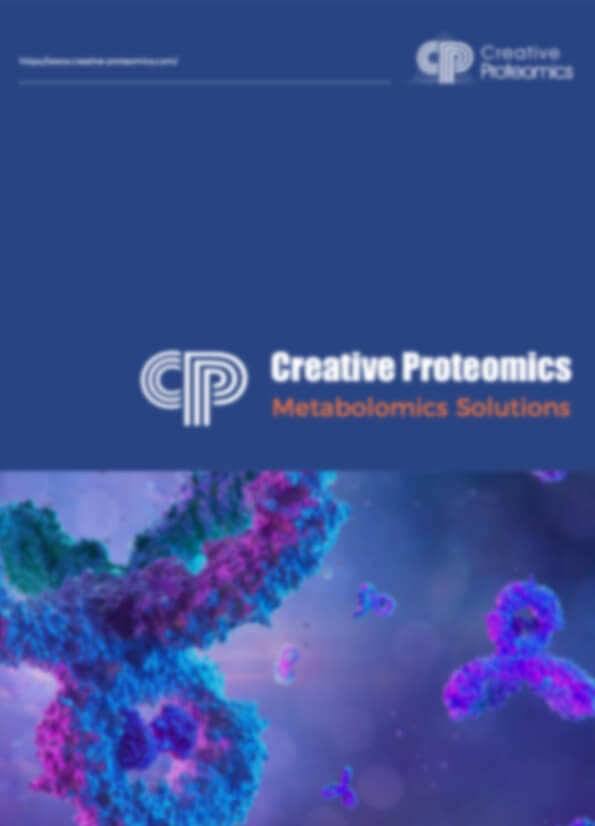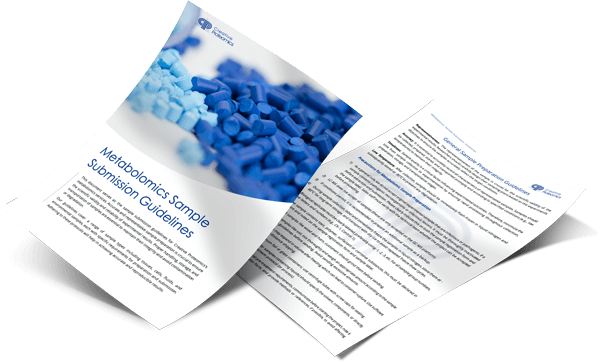Acyl CoAs Analysis Service
Creative Proteomics offers comprehensive Acyl-CoA analysis services, using advanced HPLC and LC-MS technologies to accurately quantify and profile Acyl-CoA derivatives. Our services help researchers investigate metabolic pathways, lipid metabolism, protein acylation modifications, and the impact of metabolic diseases, providing precise data to advance studies in energy regulation, disease mechanisms, and therapeutic development.
Submit Your Request Now
×- What We Provide
- List of Acyl CoAs
- Technology Platform
- Advantages
- Sample Requirements
- Demo
- FAQs
- Publications
What are Acyl CoAs?
Acyl CoA derivatives are the result of fatty acid metabolism, formed when an acyl group is attached to coenzyme A (CoA), creating a thioester bond. Acyl CoAs serve as key intermediates in lipid metabolism, impacting both energy production and storage. These molecules are involved in the synthesis and breakdown of fatty acids, including processes like fatty acid oxidation, lipid biosynthesis, and ketogenesis.
Key Roles of Acyl CoAs:
- Fatty Acid Metabolism: Acyl CoAs are involved in both the synthesis and oxidation of fatty acids. These molecules can enter pathways such as the β-oxidation cycle to produce ATP.
- Regulation of Gene Expression: Acyl CoAs also regulate protein functions through processes like acetylation, propionylation, and butyrylization, influencing a range of cellular functions, including transcription.
- Metabolic Disease and Cancer: Changes in the concentration of Acyl CoAs can be biomarkers for various diseases, including metabolic disorders and cancer, highlighting the importance of accurate Acyl CoA quantification in clinical studies.
What We Can Offer?
Creative Proteomics provides comprehensive Acyl CoAs Analysis services tailored to the needs of your research. Our advanced analytical techniques enable detailed investigation of various acyl-CoA derivatives, offering insights into their roles in metabolic pathways, disease mechanisms, and cellular functions.
- Quantification of Acyl-CoA Derivatives: Accurate measurement of various Acyl-CoA species including acetyl-CoA, palmitoyl-CoA, and more.
- Metabolic Pathway Analysis: Study the role of Acyl-CoAs in fatty acid oxidation, lipid biosynthesis, and ketogenesis.
- Acyl-CoA Modification Detection: Analyze protein acylation modifications such as acetylation, propionylation, and butyrylation.
- Acyl-CoA Profiling in Disease Research: Investigate changes in Acyl-CoA levels in metabolic diseases like obesity, diabetes, and cancer.
- Pharmacokinetics and Drug Impact: Assess the effects of drugs and compounds on Acyl-CoA metabolism.
- Fatty Acid Metabolite Identification: Identify specific Acyl-CoA species in response to dietary or environmental changes.
List of Acyl CoAs and Related Metabolites We Can Analyze
| List of Acyl CoAs and Related Metabolites We Can Analyze | |||
|---|---|---|---|
| Coenzyme A (CoA-SH) | Dephospho-CoA | Acetyl-CoA | 3-Hydroxy-3-methylglutaryl-CoA |
| Acetoacetyl-CoA | Succinyl-CoA | Methylmalonyl-CoA | Propionyl-CoA |
| Crotonoyl-CoA | 3-Methylcrotonyl-CoA | Malonyl-CoA | Butyryl-CoA |
| Isobutyryl-CoA | 3-Hydroxybutyryl-CoA | Isovaleryl-CoA | Glutaryl-CoA |
| Hexanoyl-CoA | Adipoyl-CoA | Benzoyl-CoA | Phenylacetyl-CoA |
| Octanoyl-CoA | Decanoyl-CoA | Lauroyl-CoA | Myristoyl-CoA |
| Palmitoleoyl-CoA | Palmitoyl-CoA | Heptadecanoyl-CoA | Oleoyl-CoA |
| Stearoyl-CoA | Arachidonoyl-CoA | ||
Methods for Acyl CoAs Detection
Creative Proteomics employs advanced HPLC and LC-MS techniques for the detection and quantification of Acyl-CoA derivatives. The Agilent 1260 Infinity II HPLC System ensures high-resolution separation of Acyl-CoAs, while the SCIEX Triple Quad 6500+ System provides sensitive and precise quantification using LC-MS with Multiple Reaction Monitoring (MRM) mode. These combined technologies offer accurate, reliable results for analyzing a wide range of Acyl-CoA metabolites in complex biological samples.
Advantages of Our Acyl CoAs Assay
- High Sensitivity: Our polyol assay can detect polyols at concentrations as low as 0.1 ng/mL, ensuring accurate measurement even in trace amounts within complex samples.
- Fast Turnaround: The assay provides results in as little as 2-4 hours, allowing for rapid analysis and efficient data generation.
- Wide Dynamic Range: Our method offers a dynamic range from 0.1 ng/mL to 10 μg/mL, ensuring precise quantification across a broad concentration spectrum.
- High Reproducibility: The assay achieves a CV (coefficient of variation) below 5% for intra-assay precision, providing consistent and reliable results across multiple tests.
- Broad Applicability: Suitable for a wide variety of biological samples, including plasma, serum, and tissue extracts, with a sample volume requirement as low as 10 μL.
- Accurate Quantification: Using LC-MS/MS with high-resolution instruments, we ensure quantification accuracy with less than 10% deviation from actual values in complex biological matrices.
Sample Requirements for Acyl CoAs Analysis
| Sample Type | Required Volume | Recommended Storage | Sample Preparation | Notes |
|---|---|---|---|---|
| Plasma/Serum | 50-100 µL | -80°C (long-term) or -20°C (short-term) | Centrifuge at 4°C to remove cellular debris | Avoid freeze-thaw cycles to prevent degradation |
| Tissue (Frozen) | 50-100 mg | -80°C | Homogenize in cold buffer, centrifuge to remove insoluble material | Ensure samples are properly frozen immediately |
| Cell Culture Supernatant | 200 µL | -80°C | Centrifuge at 4°C, collect supernatant | Use fresh media for the best results |
| Urine | 500 µL | -20°C or -80°C | No preparation required, except for centrifugation | Ensure proper collection to avoid contamination |
| Adipose Tissue | 50-100 mg | -80°C | Homogenize in cold buffer, centrifuge | Avoid prolonged exposure to room temperature |
| Muscle Tissue | 50-100 mg | -80°C | Homogenize in cold buffer, centrifuge | Process quickly after dissection to avoid degradation |
Applications of Acyl CoAs Assay
Metabolic Pathway Research
Study the role of Acyl-CoAs in critical metabolic processes like fatty acid oxidation, lipid biosynthesis, and ketogenesis.
Cellular Energy Regulation
Investigate how Acyl-CoAs contribute to ATP production and cellular energy balance through their involvement in the citric acid cycle and β-oxidation.
Lipid Metabolism Studies
Explore the synthesis and degradation of lipids, including phospholipids, triglycerides, and sphingolipids, by analyzing various Acyl-CoA species.
Molecular Mechanism of Protein Acylation
Analyze the impact of Acyl-CoA derivatives on protein modifications like acetylation, propionylation, and butyrylation, which regulate protein function and cell signaling.
Metabolic Disorder Research
Investigate shifts in Acyl-CoA profiles in response to metabolic stress, obesity, or other metabolic imbalances.
Nutrient and Environmental Impact Studies
Examine how diet, exercise, or environmental factors influence Acyl-CoA levels and metabolic pathways.
Demo Result of Targeted Metabolomics Service
Figures come from (Li, Y.et.al, Sci Rep,2023)
FAQ of Acyl CoAs Analysis
How does the choice of tissue type affect Acyl-CoA analysis?
Different tissues have distinct lipid profiles and metabolic activity. For example, adipose tissue may have higher levels of specific Acyl-CoAs related to storage, while muscle tissue might show differences in fatty acid oxidation markers. Understanding the tissue's metabolic role will help optimize the sample preparation and analysis, ensuring accurate results tailored to your research focus.
Can I analyze Acyl-CoA derivatives in samples with high lipid content (e.g., liver or adipose tissue)?
Yes, although high lipid content can sometimes complicate analysis due to matrix effects, we use sample extraction protocols specifically designed to reduce interference from excess lipids. If you're dealing with particularly lipid-dense tissues, we recommend discussing sample preparation strategies in advance with our team to minimize any potential issues.
What specific precautions should I take when collecting and preparing cell culture samples?
When preparing cell culture supernatants, it's crucial to use fresh media and to promptly centrifuge at low temperatures (around 4°C) to remove cellular debris. Also, avoid prolonged exposure to room temperature, as Acyl-CoA derivatives can degrade rapidly. For accurate results, ensure that you collect the supernatant immediately after cell treatment or harvesting to capture the most accurate metabolite profile.
What are the possible interferences in the analysis of Acyl-CoAs, and how are they managed?
Acyl-CoA analysis can be sensitive to matrix effects from sample components such as salts, proteins, or other metabolites that might co-elute with Acyl-CoA species. To minimize this, we employ robust sample purification and cleanup techniques (e.g., protein precipitation or solid-phase extraction) to ensure that Acyl-CoA species are adequately separated from interfering compounds before analysis.
Can Acyl-CoA levels be affected by sample processing techniques like freezing or thawing?
Yes, freezing and thawing can degrade Acyl-CoA derivatives, leading to lower recovery rates or altered metabolite profiles. For best results, avoid freeze-thaw cycles. For example, if you're processing frozen tissue samples, it is recommended to homogenize and process samples immediately after thawing to minimize degradation.
How do you handle complex sample matrices with high protein content?
For biological samples with high protein content (e.g., tissues or plasma), we implement a protein removal step before analysis. This ensures that the protein matrix doesn't interfere with the LC-MS detection, leading to more accurate quantification of Acyl-CoA derivatives. If your sample contains high protein levels, you may need to submit a higher volume to account for the loss during processing.
What happens if my sample contains interfering substances like detergents or alcohols?
Some substances, such as surfactants or solvents (e.g., alcohols), can interfere with the LC-MS analysis. If your samples are processed with such compounds (e.g., in cell culture experiments), it's crucial to discuss sample preparation with us. We may recommend an additional clean-up step or alternate extraction methods to eliminate these interferences.
Is there a limit to how many Acyl-CoA species can be analyzed in a single sample?
While we can analyze multiple Acyl-CoA species in a single run, the number of targets that can be quantified effectively in one analysis depends on the complexity of your sample and the concentration of the metabolites. Our LC-MS method is designed for high-throughput analysis, but for very complex samples, we may need to optimize the method or extend the analysis to ensure all species are accurately measured.
Can I compare Acyl-CoA levels between different species or experimental conditions?
Yes, we can provide comparative analyses of Acyl-CoA profiles across species or experimental conditions. However, when doing so, it's important to ensure that experimental variables, such as sample collection times, dietary intake, and metabolic states, are as consistent as possible across conditions to avoid confounding effects. We can help standardize your methodology for valid comparisons.
How can I be confident that my results are not skewed by sample degradation during shipment?
We strongly recommend that all samples be shipped on dry ice to maintain the integrity of Acyl-CoA derivatives. If you have concerns about sample stability during shipping, please contact us to discuss specialized sample transport protocols. If necessary, we can work with you to provide pre-collection advice to minimize degradation risks before sending.
Learn about other Q&A.
Acyl CoAs Analysis Case Study
Publications
Here are some publications in Metabolomics research from our clients:

- Identification of a novel function of hepatic long-chain acyl-CoA synthetase-1 (ACSL1) in bile acid synthesis and its regulation by bile acid-activated farnesoid X receptor. 2019. https://doi.org/10.1016/j.bbalip.2018.12.012
- Physiological, transcriptomic and metabolomic insights of three extremophyte woody species living in the multi-stress environment of the Atacama Desert. 2024. https://doi.org/10.1007/s00425-024-04484-1
- Bacterial–fungal interactions revealed by genome-wide analysis of bacterial mutant fitness. 2021. https://doi.org/10.1038/s41564-020-00800-z
- Anti-inflammatory activity of black soldier fly oil associated with modulation of tlr signaling: A metabolomic approach. 2023. https://doi.org/10.3390/ijms241310634
- Methyl donor supplementation reduces phospho‐Tau, Fyn and demethylated protein phosphatase 2A levels and mitigates learning and motor deficits in a mouse model of tauopathy. 2023. https://doi.org/10.1111/nan.12931














